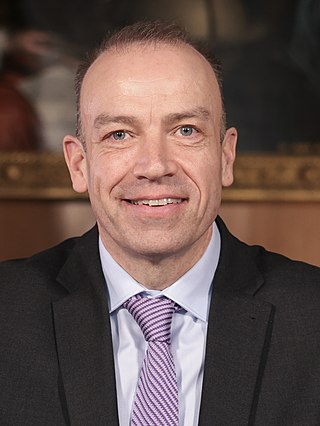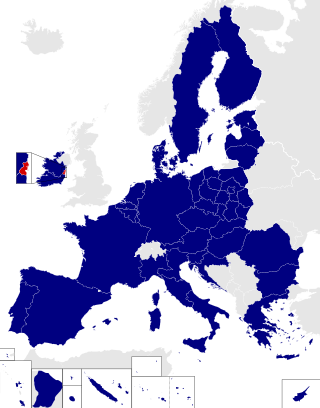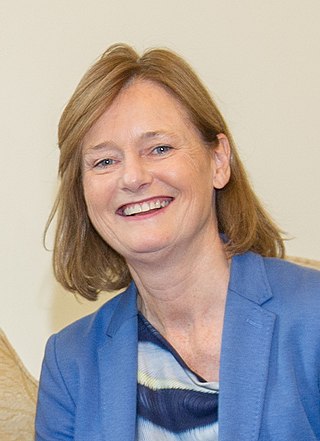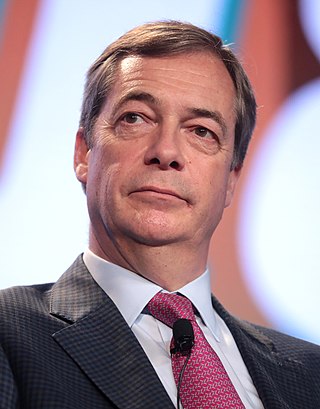See also
- Members of the European Parliament (2019–2024) – List by country
- List of members of the European Parliament (2019–2024) – Full alphabetical list
| Members of the European Parliament for Ireland | ||||||||||||||||||||||||||
| ||||||||||||||||||||||||||
| Women | ||||||||||||||||||||||||||
This is a list of the members of the European Parliament for Ireland elected at the 2019 European Parliament election. They served in the 2019 to 2024 session, but two of them did not take their seats until the reallocation of seats which took place when the MEPs elected for the United Kingdom vacated their seats on the implementation of Brexit on 31 January 2020.
| Party | Outgoing | Constituency | Reason | Date | Replacement | |
|---|---|---|---|---|---|---|
| Sinn Féin | Matt Carthy | Midlands–North-West | Carthy elected to Dáil Éireann at the 2020 general election | 8 February 2020 | Chris MacManus | |
| Fine Gael | Mairead McGuinness | Midlands–North-West | McGuinness appointed as European Commissioner | 20 November 2020 | Colm Markey | |

The United Kingdom is a constitutional monarchy where executive power is delegated by legislation and social conventions to a unitary parliamentary democracy. From this a hereditary monarch, currently King Charles III, serves as head of state while the Prime Minister of the United Kingdom, currently Rishi Sunak since 2022, serves as the elected head of government.

The legislatures of the United Kingdom are derived from a number of different sources. The Parliament of the United Kingdom is the supreme legislative body for the United Kingdom and the British overseas territories with Scotland, Wales and Northern Ireland each having their own devolved legislatures. Each of the three major jurisdictions of the United Kingdom has its own laws and legal system.

A member of the European Parliament (MEP) is a person who has been elected to serve as a popular representative in the European Parliament.

Christopher Heaton-Harris is a British politician who has served as Secretary of State for Northern Ireland since 6 September 2022. A member of the Conservative Party, he served as the Member of Parliament (MP) for Daventry from 2010 to 2024.

The apportionment of seats within the European Parliament to each member state of the European Union is set out by the EU treaties. According to European Union treaties, the distribution of seats is "degressively proportional" to the population of the member states, with negotiations and agreements between member states playing a role. Thus the allocation of seats is not strictly proportional to the size of a state's population, nor does it reflect any other automatically triggered or fixed mathematical formula. The process can be compared to the composition of the electoral college used to elect the President of the United States of America in that, pro rata, the smaller state received more places in the electoral college than the more populous states.

Dublin is a European Parliament constituency in Ireland. It elects 4 Members of the European Parliament (MEPs) using proportional representation by means of the single transferable vote.

South is a European Parliament constituency in Ireland. It elects 5 Members of the European Parliament (MEPs) using proportional representation by means of the single transferable vote.

Deirdre Clune is an Irish politician who is a Member of the European Parliament (MEP) from Ireland for the South constituency. She is a member of Fine Gael, part of the European People's Party.

The 2014 European Parliament election was the United Kingdom's component of the 2014 European Parliament election, held on Thursday 22 May 2014, coinciding with the 2014 local elections in England and Northern Ireland. In total, 73 Members of the European Parliament were elected from the United Kingdom using proportional representation. England, Scotland and Wales use a closed-list party list system of PR, while Northern Ireland used the single transferable vote (STV).

The 2019 European Parliament election was the United Kingdom's component of the 2019 European Parliament election. It was held on Thursday 23 May 2019 and the results announced on Sunday 26 and Monday 27 May 2019, after all the other EU countries had voted. This was the United Kingdom's final participation in a European Parliament election before leaving the European Union on 31 January 2020, and was also the last election to be held under the provisions of the European Parliamentary Elections Act 2002 before its repeal under the European Union (Withdrawal) Act 2018 and was the first European election in the United Kingdom to be held on a day that did not coincide with any local elections since 1999.

The 2019 European Parliament election in Ireland is the Irish component of the 2019 European Parliament election and was held on Friday, 24 May 2019, on the same day as the 2019 local elections and a referendum easing restrictions on divorce. The election was conducted in three constituencies under the single transferable vote (STV). Thirteen MEPs were elected, but the last candidate elected in both Dublin and South did not take their seats until after Brexit on 31 January 2020.

In 2016, the impact of Brexit on the European Union (EU) was expected to result in social and economic changes to the Union, but also longer term political and institutional shifts. The extent of these effects remain somewhat speculative until the precise terms of the United Kingdom's post-Brexit relationship with the EU becomes clear. With an end to British participation in the EU's policies on freedom of movement of goods, persons, services, and capital, and the European Union Customs Union, as well as sharing criminal intelligence and other matters, there is a clear impact with consequences for both institutions.

Reform UK is a right-wing populist political party in the United Kingdom. Founded in November 2018 as the Brexit Party, advocating a no-deal Brexit, it won the 2019 European Parliament election in the UK, but did not win any seats at the 2019 general election. The UK withdrew from the EU in January 2020. A year later, in January 2021, the party renamed itself Reform UK. During the COVID-19 pandemic the party advocated against further lockdowns. Since 2022, the party has campaigned on a broader platform, in particular opposing immigration and the government's Net Zero energy policy. Following Farage's resumption of the party leadership in early June during the 2024 general election campaign, opinion pollsters and analysts reported an increase in support for the party.
Benyamin Naeem Habib is a British businessman and politician serving as Co-Deputy Leader of Reform UK since 2023, alongside David Bull. He was elected as a Brexit Party Member of the European Parliament (MEP) in the 2019 European parliamentary election. He remained in the role until the United Kingdom's withdrawal from the EU.

The ninth European Parliament was elected during the 2019 elections and is slated to remain in session until the forthcoming 2024 elections.
Heather Anderson is a Scottish National Party (SNP) politician who briefly served as the Member of the European Parliament (MEP) for the Scotland constituency in late January 2020.